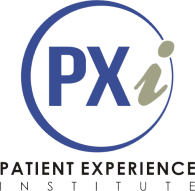Abstract
Research has shown that a comprehensive call center can support a safe, efficient, and quality experience for patients and their families. When a patient receives a cancer diagnosis, the stakes are already high. Add a pandemic to an immunocompromised patient population and fear escalates. In order to accommodate the ever-changing information and ease patients’ anxieties surrounding their cancer diagnoses, it is necessary that an institution be available 24/7 to inform, help navigate systems, and manage symptoms because the emergency room, and many times the clinics, have too many inherent risks.
MD Anderson expanded the hours of operation for askMDAnderson, a comprehensive call center staffed by operators, health information specialists, registered nurses, and advance practice providers, to cater to all the needs, and to support safe and efficient operations during the pandemic. This highly skilled team serves as a critical information link to patients and their loved ones for all transitions in care needs, such as guidance on food delivery, parking, medication renewals and side effect management.
The askMDAnderson staff educates our stakeholders about MD Anderson services, programs, treatments and clinical trials during and after the pandemic until we return to the "new normal." Our employees are available for all levels of “hand holding” and provide a constant flow of timely, factual information. In this case study, you will learn how MD Anderson expanded this newly evolving system and how our team’s efforts led to a safer, more efficient, less expensive, and more satisfying care experiences for patients and their families.
Experience Framework
This article is associated with the Infrastructure & Governance lens of The Beryl Institute Experience Framework. (http://bit.ly/ExperienceFramework)
- Access other PXJ articles related to this lens.
- Access other resources related to this lens.
Recommended Citation
Finder JP, Proske A, Overton J, Garcia EC, Frumovitz M. A comprehensive call center supporting safe, efficient operations during a pandemic. Patient Experience Journal. 2020; 7(2):87-91. doi: 10.35680/2372-0247.1456.
Creative Commons License

This work is licensed under a Creative Commons Attribution-Noncommercial-No Derivative Works 4.0 License.
Included in
Health and Medical Administration Commons, Health Policy Commons, Health Services Administration Commons, Health Services Research Commons


